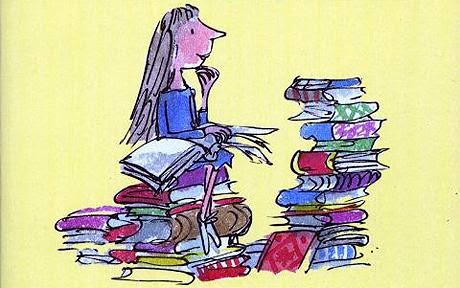My new research project for my academic work is on precocious children in literature and culture. I was trying to explain this in wobbly Spanish to my friend in Madrid by saying that I was studying 'el niño precocido', which made her burst out laughing - turns out it means the 'precooked child'.
It's a shame I'm not actually doing that; as far as I'm aware, it's a very undertheorised motif.
 |
| Maurice Sendak, In the Night Kitchen |
But the literature, though it does acknowledge parental involvement in so-called child 'precocity', can be vociferous against parents. Parents are often described as 'pushing' their child, 'too early', with no regard for 'normal development'. In other words, they're indeed 'precooking' their child in the hope that it will have the equivalent effect as their 'ripening early'.
And everyone knows that no amount of apple compote will make up for their being unripe.
Even scientifically rigorous articles get into very harsh denunciations of parents who try to 'create' 'precocious' children. Some scholars make the striking claim that exceptional children ahead of their peers who have been 'pushed' by their parents don't 'deserve' to be called precocious. Since the notion is essentially fallacious, its definition fluctuates anyway, but the hostility against the 'pushy parent' is interestingly intense.
Roald Dahl's Matilda famously begins with a critique of such parents:
It’s a funny thing about mothers and fathers. Even when their own child is the most disgusting little blister you could ever imagine, they still think that he or she is wonderful.
Some parents go further. They become so blinded by adoration they manage to convince themselves their child has qualities of genius.
Children's books and films are indeed generally quite severe against parents who 'push' their children to 'overachieve', and don't grant them the same status as children presented as 'naturally gifted'.There's a clear moral split between the precooked and the precocious, even if in effect they achieve the same results.
 |
| The bad precocious child |
The myth of child precocity is paradoxical. It's torn between conflicting adult desires that such children should be, on the one hand, entirely unexplainable (a conservative, mystical view of precocity) and on the other hand, possible to create (from a more liberal democratic perspective).
So we don't like the idea that some children should be born with more 'gifts' than others: that hurts our egalitarianism. But at the same time, we definitely don't like to see how they're made, how they're cooked, specifically by their parents. It feels like we're just being tricked ('it's not real precocity!'). The ambiguity of this discourse is reflected in scientific articles about child precocity or 'giftedness', and often in children's books and films.
 |
| TMI. |
At heart, we want to believe in the possibility of a 'miraculous' child whose intelligence and creativity has no rational explanation. We also think that pushy parents are only pushy out of pure narcissism. And also, yes, we're jealous: who are these parents who are so 'gifted' at this parenting thing? (Judging from my Facebook feed, it's a ferocious competition out there).
We prefer to think that they will suffer a sad fate, and their children too. They will be punished for precooking children when they aren't ripe enough. HA!
Children's literature from Jacqueline Wilson to J.K. Rowling often indulges in such dreams, with cautionary tales that such 'fake precocious children' will never 'achieve their potential' and instead end up depressed and lonely - or, for the more positive tales, rebel before they're completely rotten.
 |
| The good precocious child |
And yet the ideal precocious child is uncooked, free from additives, a mystery to all. It is a child who laughs at the efforts of well-meaning adults to influence her.
That ideal precocious child lands in our writerly nets.
And then we can give it our books. Children's literature is absolutely OK with 'real' precocious child characters reading our books. We just love being in charge of the cooking.
_____________________________________
Clementine Beauvais, hypocrite auteur of several books featuring precocious children, writes in both French and English. The former are of all kinds and shapes, and the latter a humour/adventure detective series, the Sesame Seade mysteries (Hodder). She blogs here about children's literature and academia and is on Twitter @blueclementine.
0 Comments on Precooked Children and Pushy Parents - Clémentine Beauvais as of 2/28/2014 4:30:00 AM
Add a Comment


